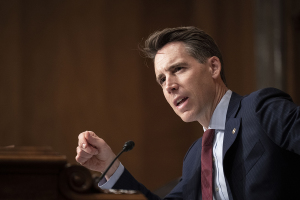Troy Davis Story: Georgia Inmate's Execution a Wake-Up Call for America?
Despite the urging of millions of Americans who kept saying, "Seven of nine witnesses recanted. No physical evidence. Too much doubt," Troy Davis was executed by lethal injection Wednesday night shortly after 11 p.m. The effort to prevent his execution spanned the globe, and many are wondering how Davis' case might impact the movement to end the death penalty in the U.S.
The movement to stop Troy Davis from being executed was arguably one of the largest movements to stop a man from being executed in U.S. history.
Rallies were held all across the country and around the world. Organizations like Amnesty International and Change.org used the Internet to acquire over a million signatures and delivered them in a petition to the doorstep of the Georgia Parole Board.
Thousands of people on Twitter voiced their support with "#TroyDavis" and "#TooMuchDoubt" hashtags. In the end, their efforts failed.
However, death penalty abolitionists are optimistic that, although they have suffered a tremendous defeat, it holds positive ramifications for the future.
Richard Dieter, Executive Director of the Death Penalty Information Center, believes that although Davis is dead, the effort to prevent future death penalties will stay alive.
"The level of discomfort and opposition to what happened last night was powerful," Dieter told The Christian Post (CP). "Around the world, there were high levels of support that has rarely, if ever, been seen before."
"Things are going to change," Dieter said. "This was a wake-up call that America is not comfortable with the death penalty."
Dieter is confident that even though there might never be another occurrence with the numbers involved in Davis' movement, there will be more efforts because people are more aware.
"They're more educated now," Dieter said. "The public realizes the death penalty system is flawed…it needs to be fixed."
Dieter pointed out how many people had rallied in front of the White House, the Supreme Court building, and outside of the Georgia Diagnostic Prison where Davis was being held and eventually executed.
"This was a symbolic moment," Dieter said.
The National Coalition to Abolish the Death Penalty (NCADP) released a statement Wednesday night that said their mission will continue to go forward with even greater urgency, especially in Georgia.
"The effort to save the life of Troy Davis ends today but the campaign to end the death penalty begins anew, in earnest," the NCADP said. "If the people cannot control their government, if what is done in our name is done despite our objection, it is our solemn duty to work with the people of Georgia to make it right. Government must be responsible and accountable to the people - all the people equally."
The statement continued: "Today, the state of Georgia has demonstrated the extreme degree to which its system of justice is broken. It can not be sustained. We call on all who have worked so tirelessly in Georgia to prevent this travesty of justice to work equally hard with us to end the death penalty Georgia, and everywhere so that no family will again have to suffer what Troy Davis's family has suffered today."
Martina Correira, Davis' sister, who has been his most vocal proponent and helped spearhead the movement to prevent his execution, told the San Francisco BayView earlier this year that despite the constant letdowns during her brother's 22 years in prison, Davis had turned the pain into a positive.
"He asks God if it's His will to use him to make a bigger statement about innocence, then that’s God’s will," she said.



























